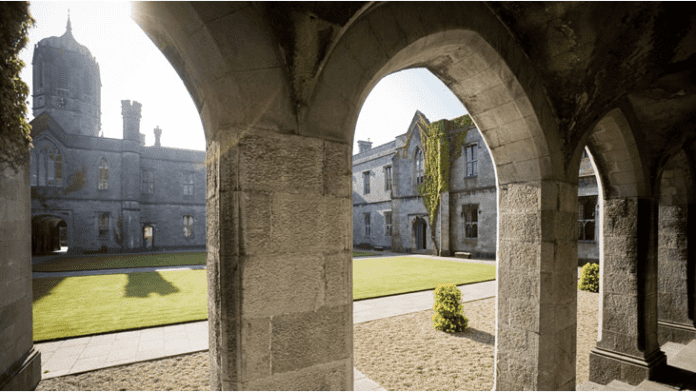Three NUI Galway academics have been awarded funding for research projects which aim to investigate societal challenges as a result of climate change, digitalisation and extinction.
Dr Una Murray, Professor Kieran Walsh and Dr Kevin Healy secured funding from the Irish Research Council’s COALESCE programme for their separate research projects.
Professor Jim Livesey, Vice President for Research and Innovation at NUI Galway, commended the researchers on being awarded the COALESCE programme funding.
“Their commitment to overcome the global challenges that we face stay true to our University’s values of Respect, Openness, Sustainability and Excellence,” said Professor Livesey.
“Investigating these societal challenges is a wonderful example of how our research aims to tackle some of the world’s most pressing issues through the Global Challenges Programme in our new Research and Innovation Strategy.
“I would also like to thank the Irish Research Council and the Department of Foreign Affairs for their continued support of our public research mission.”
Dr Una Murray, an international development expert from the School of Geography, Archaeology and Celtic Studies and the University’s Ryan Institute, has been awarded €338,000 for a three-year research project on climate change and migration in Sub-Saharan Africa.
Dr Murray’s project will investigate links between human migration and climate change, combined with the role of social protection in Ethiopia.
“Land degradation, water scarcity and declines in agriculture production, driven by an increasing intensity and frequency of environmental disasters induced by climate change, are key triggers for people to move from rural to urban areas for employment opportunities,” said Dr Una Murray.
“Social protection, social insurance, and cash transfers, although present in the UN Sustainable Development Goals and in the climate loss and damage debate, could play a stronger role in human migration and other forms of climate adaptation.”
Professor Kieran Walsh, Centre for Social Gerontology, NUI Galway, has been awarded €192,161 for a project addressing related challenges concerning digital exclusion and limited opportunities for engagement and participation for older people.
Virtual-EngAge aims to examine how everyday communication devices – telephones, smart phones and tablets – could be used by retirement groups to strengthen ways to support members and others to stay connected, to share critical information and to advocate on key issues.
The project will help to address the question of ageing related technology being developed without consultation with older people, and not reflecting their needs, preference or daily lives and will also help provide improvements in policy, older people’s lives, research teams and teaching programmes.
Professor Walsh said: “The COALESCE funding will enable us to pursue a really critical research area, within the Virtual-EngAge research programme, identifying how we can harness everyday technologies to enhance older people’s social connectivity and civic voices while also recognising and capitalising on the innate skills of many older people for adaptation and learning.
“This funding is really important as it not only helps us respond to the gaps exposed by the Covid-19 pandemic, but to do so using a much needed interdisciplinary approach with our Co-Investigator on this programme, Professor Carl Vogel from Trinity College Dublin, and through a valuable collaboration with Active Retirement Ireland.”
Dr Kevin Healy, a Lecturer of Zoology and researcher in the Ryan Institute, will collaborate with Dr David Doyle, a lecturer in Law at MU, to investigate how we decide which species to bring back from extinction and whether a de-extinct species could be legally “owned” through patents. The project was awarded funding of €190,803.
The project will examine how different factors might drive which species are ultimately restored from extinction and whether the species resulting from the de-extinction process will fall under international protection laws or are open to being patented.
Dr Healy said: “We want to explore which species are likely to be selected for de-extinction.
“For example, how do ecological considerations, such as the impact a de-extinct species would have on the environment, or the level of interest from the general public affect these decisions?
“Will the species we bring back from extinction simply reflect technological and ecological limitations or will financial factors be the main de-extinction selection criteria?”











